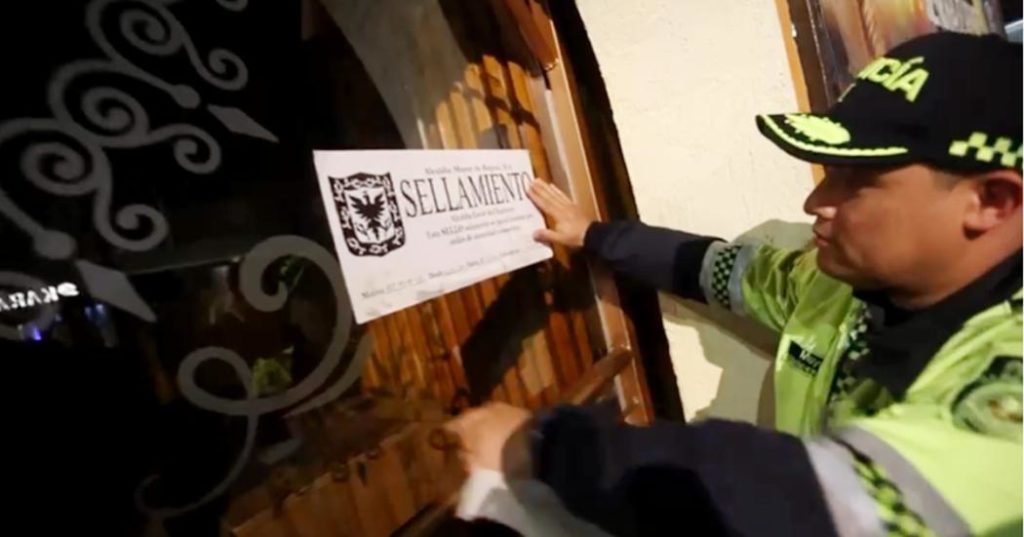
The President of Colombia, Gustavo Petro, has denounced police corruption in a public act of the police force in Bogota. In an act called the ‘New Model of Police Service Oriented to People and Territories’, in which the head of state advocated for a police force “less militarized and closer to the citizens”, he denounced the collusion of part of the police with micro-trafficking dealers in Bogota.
This statement, made in the middle of his speech before an audience of 10,000 people, earned him the rejection of some of the attendees, people directly linked or very close to the police. The controversy arose when Petro spoke of the work of the uniformed police in the neighborhoods and their role in preventing drug use among the youth.
Denounces police links with crime
After forty minutes of intervention, and almost at the end of his speech, the president affirmed that “every neighborhood policeman knows where the olla [the colloquially used term in Colombia for the points of sale, exchange, and consumption of drugs] is, and what happens is that the olla buys the policeman.”
Despite the signs of disapproval from the audience, the head of state went on to defend that “this is known… by all of us present here. Anyone who knows the life of a Bogota neighborhood knows perfectly well that criminals, living with the police in the neighborhood, can co-opt them”.
In this regard, Gustavo Petro affirmed that it is logical that these criminal groups buy the neighborhood police if they manage to buy senators. “How is it [crime] not going to be able to buy a policeman if it has placed entire state institutions at their service? How is it not going to be able to buy the police, if it has bought judges, prosecutors if 35% of the Senate had to be taken to jail [for corruption]?” the president asked rhetorically.
Police chief qualifies
General William Salamanca, police director appointed by this same government, referred to the presidential statements at the end of the event. The leader of the police force acknowledged that “if we want to have an institution within the reach of the community, away from any hint of corruption, it is up to all of us to help. The community has been important in denouncing behaviors of police officers that go beyond the code of ethics and we have not ruled out in some places the involvement of a few police officers with delinquency, and we have addressed them, and it is up to us to bring them to justice.”
Salamanca added that of the 170,000 members of the National Police, “99.9 percent are committed to Colombia. There are a few behaviors that we are attacking with forcefulness,” in an evident defense of the corps he commands.
Popular rumors
The reality is that the Colombian police force has always lived under permanent public suspicion of corruption. Popular rumor always speaks of one or another case in which the actions of the public forces are far from being in line with their duties as guarantors of law enforcement. Although there are few complaints, due to the scarce existence of actual proof or evidence, there are more than a few Colombians who tell of experiences in which cases of police corruption have been manifest.
Among the most commented, but not denounced, aspects of this is the request for money from the highway police to avoid traffic sanctions or, as in the popular neighborhood of Chapinero in Bogota, the alleged police inaction in cases of noise pollution from various bars and nightclubs that operate in this well-known sector of the capital’s nightlife. Although never in a public way, neighbors of Chapinero attribute this to charges of money from the discotheques by some uniformed officers.
Although these are not always cases of corruption, public perception often attributes conflicts that the police are unable to resolve to this root cause. The truth is that some episodes also occur due to the inability and excessive bureaucratization of the police force.

See all the latest news from Colombia and the world at ColombiaOne.com. Contact our newsroom to report an update or send your story, photos and videos. Follow Colombia One on Google News, Facebook, Instagram, and subscribe here to our newsletter.

